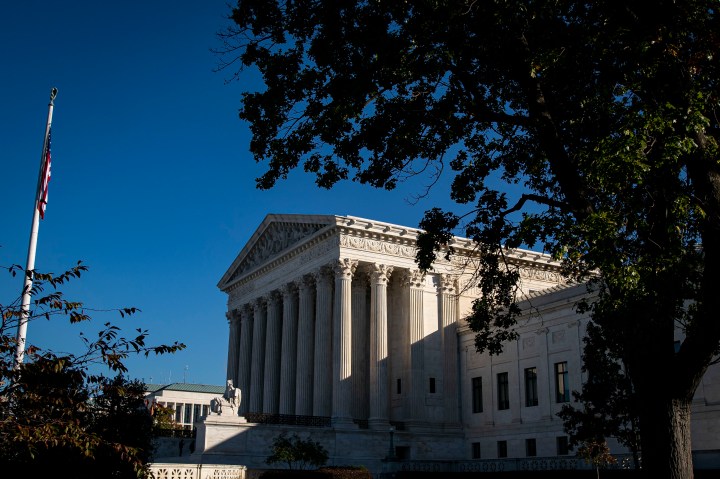
The economic impact of SCOTUS upholding the Indian Child Welfare Act
The economic impact of SCOTUS upholding the Indian Child Welfare Act

Indian Country breathed a sigh of relief on Thursday morning when the U.S. Supreme Court upheld the Indian Child Welfare Act, or ICWA. That 1978 federal law gives tribal nations a voice in custody proceedings involving Native children and aims to keep them connected to their families and communities.
“It’s a good day in Indian Country and it’s a good day for the rule of law,” said Dan Lewerenz, a professor at the University of North Dakota School of Law and a former attorney with the Native American Rights Fund.
The 7-2 ruling was a victory for tribal nations and Native families and a massive setback for business interests looking to upend the law. For one, Lewerenz said, plenty of adoption agencies would have liked to see ICWA disappear.
“There is an industry out there where tens of thousands, hundreds of thousands of dollars change hands because of adoptions. And in that industry, children are commodities,” Lewrenz said.
The historic commodification of Native children who’d been removed from their homes was part of what made ICWA necessary to begin with. Now, Lewrenz said, many adoption agencies and lawyers see the law as taking potential adoptees “off the market” and cutting into their bottom line.
Stacy Leeds, a law professor at Arizona State University, said a host of less obvious industries including “oil and gas, natural resources and gaming” stood to gain from an ICWA strikedown. Behind the challenge to ICWA, Leeds said, is a challenge to tribal nations’ political sovereignty and the legal framework that allows them to govern themselves.
“The whole of the field of federal Indian law is premised on this special [nation-to-nation] relationship between the United States and the tribes,” Leeds said.
The plaintiffs in Brackeen v. Haaland, including non-Native adoptive parents of Native children, challenged that relationship. But the court declined to upset over a century of precedent authorizing Congress to work with and make laws related to tribal nations.
“Had this case gone the other way, that would have been an indication that the Supreme Court was also willing to overturn prior decisions in tax cases, in natural resource cases,” Leeds said, opening the door for states to exercise more authority on tribal lands.
The plaintiffs also argued that ICWA violates the equal protection clause of the Constitution by discriminating against non-Native families, and providing a benefit to tribal nations, based on race. Tribal leaders and the federal government reject this premise, asserting that ICWA and other Indian law statutes apply to tribes and tribal citizens based on their unique political status.
A strikedown on equal protections grounds would have cast a shadow on laws like the Indian Gaming Regulatory Act, which allows tribal nations to generate revenue by operating casinos. But the court did not make a ruling on that question because, it said, the plaintiffs lacked legal standing to ask it. According to Dan Lewerenz, that leaves the door open for future legal challenges.
“I have no doubt that the plaintiffs’ lawyers are actively looking for their next case to [try to] upset the Indian Child Welfare Act and Indian law more generally,” he said. “But this has become a more difficult business proposition for the plaintiffs.”
A multinational corporate law firm that represents lots of commercial gaming and oil and gas clients argued Brackeen v. Haaland pro bono, meaning it sunk millions into the case that it won’t get back. After this loss in the Supreme Court, Lewerenz said there’s a question of who will be willing to bankroll future ICWA challenges.
Editor’s note (June 16, 2023): This story has been updated to add additional details.
There’s a lot happening in the world. Through it all, Marketplace is here for you.
You rely on Marketplace to break down the world’s events and tell you how it affects you in a fact-based, approachable way. We rely on your financial support to keep making that possible.
Your donation today powers the independent journalism that you rely on. For just $5/month, you can help sustain Marketplace so we can keep reporting on the things that matter to you.











